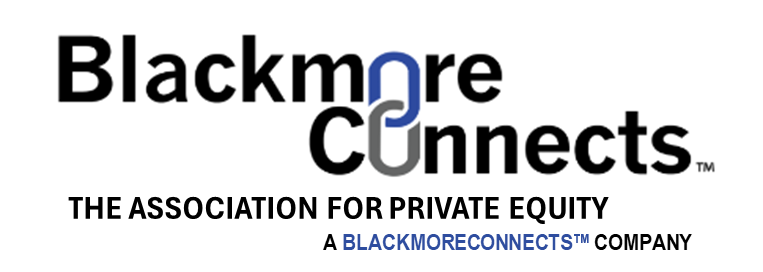Case Study: Why Executives Must Expand Their View to Include Macro Factors in Private Equity
Written By: Gerald O’Dwyer IIThe PE Guru — BlackmoreConnects, Inc | November 12, 2024
Background: In the ever-evolving world of private equity (PE), most executives maintain a narrow focus on micro-level operations—on EBITDA growth, cost-cutting, and quarterly results. While these metrics are crucial, as an executive-first family office, we at BlackmoreConnects encourage our executives to elevate their perspective. Success, particularly in the lower middle market, requires understanding macro-level dynamics such as political policies, regulatory changes, and economic indicators that deeply influence market behavior. Without this comprehensive outlook, value creation strategies can lack the resilience needed in today’s complex economic environment.
In this case study, I’ll explore why PE-backed executives must consider these broader factors to craft effective, long-lasting strategies. When executives fail to consider the macro perspective, they risk building value that can quickly erode under shifting external pressures. This exhaustive list dives into the political and economic levers that executives should incorporate in their PE playbooks to drive sustainable growth.
Key Macro Factors Essential for Value Creation
- Regulatory Environment
- Reasoning: Shifting regulations—from environmental standards to data compliance—can transform operational expenses and alter competitive landscapes. For PE-backed companies, proactively navigating regulatory landscapes is crucial to minimizing surprises.
- Example: A sudden regulatory requirement for emissions reduction could significantly impact production costs, quickly affecting valuation.
- Consequence of Overlooking: Executives who miss regulatory cues may face unexpected compliance costs or fines that hinder the PE firm’s return on investment.
- Tax Policies
- Reasoning: Tax policy shifts impact cash flows, financing options, and investor returns. Tax efficiency within the portfolio is key for maximizing exit value.
- Example: Recent corporate tax changes can affect capital reinvestment decisions, highlighting the need for tax-savvy strategies.
- Consequence of Overlooking: Failing to optimize tax structures can lower net earnings and weaken the company’s position in the marketplace.
- Interest Rates and Monetary Policy
- Reasoning: PE firms rely heavily on debt financing, and rising interest rates can significantly impact the cost of capital and financing options.
- Example: A shift in the Federal Reserve’s policy could increase financing costs, eroding free cash flow.
- Consequence of Overlooking: Missing monetary policy signals can lead to unanticipated debt costs and impact the exit timing.
- International Trade Policies
- Reasoning: Trade restrictions, tariffs, or sanctions can disrupt supply chains and customer access. For businesses dependent on global suppliers or markets, understanding trade dynamics is paramount.
- Example: Recent tariffs on imported materials raised costs for a PE-backed manufacturing company, highlighting the need for alternative sourcing.
- Consequence of Overlooking: Failure to anticipate or adapt to trade policies can directly impact supply chain stability and pricing strategy.
- Political Climate and Stability
- Reasoning: Political changes affect everything from consumer confidence to regulatory focus. Political shifts that either favor or hinder business activities can directly impact performance.
- Example: Government incentives for domestic manufacturing present opportunities for growth within the US but could disadvantage foreign expansions.
- Consequence of Overlooking: Ignoring political risks can leave companies vulnerable to sudden policy changes, undermining operational stability and investor confidence.
- Economic Growth and GDP Trends
- Reasoning: Economic cycles shape consumer demand, investor sentiment, and business growth potential. Aligning business strategies with economic phases can boost resilience.
- Example: Expanding during a boom phase might yield higher returns, while caution during recessions can safeguard investments.
- Consequence of Overlooking: Overestimating economic growth could result in overexpansion, unsustainable debt, or declining demand, impacting long-term profitability.
- Industry-Specific Policy Changes
- Reasoning: Sector-specific policies, such as healthcare reforms or renewable energy incentives, directly impact operational costs and market positioning.
- Example: Incentives for renewable energy adoption may increase initial costs but open up future market opportunities.
- Consequence of Overlooking: Ignorance of industry regulations can make investments non-compliant or less competitive, compromising returns.
- Labor Market Dynamics
- Reasoning: Labor costs, talent availability, and productivity affect operational efficiency. Strategic hiring and automation investments hinge on labor trends.
- Example: Rising wages may call for automation investments to manage costs.
- Consequence of Overlooking: Failing to adapt to labor trends could increase operational costs and impact profitability.
- Environmental and ESG Regulations
- Reasoning: Environmental regulations and consumer demand for ESG compliance are shifting rapidly, influencing operational processes and corporate reputation.
- Example: Compliance with ESG standards has become a key factor in attracting investors and customers.
- Consequence of Overlooking: Neglecting ESG considerations can lead to regulatory fines, reputational damage, and lost investor confidence.
- Healthcare and Social Policies
- Reasoning: Policy changes around healthcare impact both employee costs and disposable income, influencing demand in consumer sectors.
- Example: Expanded healthcare access can increase disposable income, driving demand for discretionary products.
- Consequence of Overlooking: Misjudging policy impact can lead to misaligned growth strategies and lost revenue opportunities.
Consequences of a Narrow View in Value Creation
In our experience, executives who fail to incorporate these macro factors are often left unprepared when external pressures disrupt operational and strategic plans. While a micro view can appear advantageous in the short term, it leaves the portfolio vulnerable to rapid shifts in regulations, economic downturns, or political instability. For example, ignoring interest rate trends might yield short-term gains but result in high refinancing costs that disrupt long-term objectives.
At BlackmoreConnects, we guide our executives to explore beyond their immediate operational concerns, building a robust value creation playbook that withstands external pressures. A narrow view may offer some short-term wins, but a macro outlook is indispensable for long-term success, building resilience, and achieving optimal exit valuations.
By embracing this approach, we aim to mitigate risks, maximize growth opportunities, and maintain competitive advantages that align with our investment philosophy. In the rapidly changing world of private equity, looking beyond immediate operations to the larger political and economic landscape is no longer optional—it’s essential.
